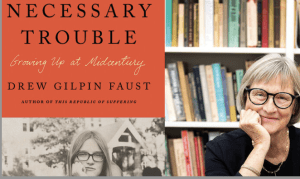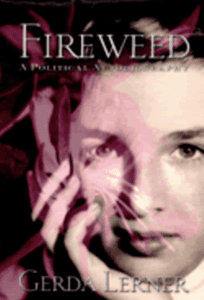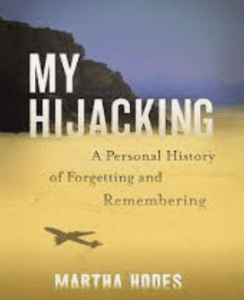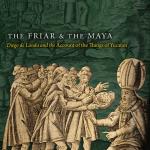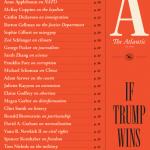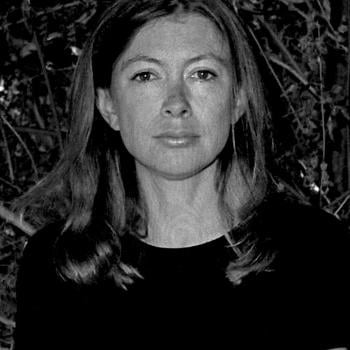I’m 50 my next birthday, and it seems a time for taking stock and for thinking a bit about the arc of my life, for locking down a bit of my personal archive. This has been harder than I would have thought. In spite of the ways we are always digging through the files of other lives, considering our own in this way isn’t as straight forward. In fact, it appears that memoir doesn’t always come easily to the historian.
As I was listening to an interview with Harvard president emeritus Drew Gilpin Faust about her new memoir Necessary Trouble: Growing Up at Midcentury, I wondered why I had read so few like it. In my college days, I read Beyond a Boundary by C.L.R. James, and then more recently I read one by one of my graduate professors, Hanna Holborn Grey’s An Academic Life. There are others, but for people whose bread and butter is remembering the past, historians are remarkably shy about telling their own stories.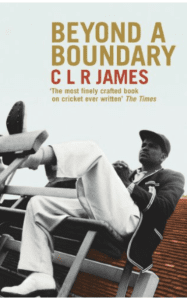
Like journalists, historians have traditionally been trained to keep themselves out of their stories, and memoir necessarily does the opposite. We also struggle to trust memory without the required proliferation of sources which are not staples in autobiography or memoir. Historians want context, and deciding how much context to provide for the meaning of our own lives could potentially be a stumbling block to centering our own story.
It’s also possible that working historians have led fairly pedestrian lives, which is why most of the memoirs I am familiar with, such as Gerda Lerner’s Fireweed: A Political Autobiography, come from pathbreaking scholars, who were also activists, or whose lives could stand in for a culturally or politically challenged group. Hanna Grey’s memoir wasn’t particularly lively, but Grey felt it important to communicate the unique traits of her generation of WW2-era immigrants. While she was the first women to head a major university, it wasn’t this element of her autobiography focuses on, instead she creates a picture of the intellectual community that was created from the academic refugees of the 1930s and 1940s.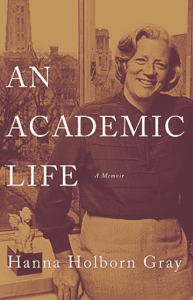
It seems that we can’t help but see our lives as part of the larger evidence for understanding a complex history, one that goes beyond whatever we were experiencing. Drew Gilpin Faust, for instance, was compelled to tell the story of her growing up as a member of the White elite in Virginia before desegregation. She recognizes that fewer people are around to talk about this and to communicate the way things were and how they changed and what made it possible for them to change.
An excellent demonstration of how historians can combine the personal and professional is Martha Hodes’s My Hijacking: A Personal History of Forgetting and Remembering. Hodes applies the skills she has as a historian to dig into her memories, as well as the larger evidence around her 1970 experience being hijacked with her family by Palestinian terrorists. While historians frequently study events that are traumatic and have to analyze the evidence and witness of victims of violence, it usually isn’t our own trauma they are including. Hodes’s work reveals why we don’t often do this.
And yet, the old saying attributed to Ralph Waldo Emerson that “all history is biography” is echoed when historians discuss their choice of research subject. We often are studying ourselves as we study the past, or at a minimum we are trying to understand something that impacts us or our own people, however that is defined. We are never not at least a little part of what we study. Perhaps memoir and autobiography can help us be a little bit honest about the importance of the individual, even the individual scholar, in understanding the whole.
In my undergraduate capstone course in the fall of 1995, my history mentor Benjamin McArthur required all of us to write our own autobiography with a theme. I don’t know what the theme for my life was, but I know he felt that we needed to get used to the idea of writing narrative with an argument without stressing about footnotes. And one’s own life is often the first way we discover the historian’s core tenant: change over time.
I have kept a diary since I was 11 years old. I began because I had recently read what I thought was an autobiography by Laura Ingalls Wilder and was sure that in order to do that sort of writing I needed to document my whole life. I began filing my correspondence and keeping track of paperwork in an organized way. By my university years, I had learned that the Little House on the Prairie books were well-researched historical fiction and had put away any sense that I would need to write about my own life. Instead, I turned to the study of the early modern Atlantic world.
Historians like Faust and Gray feel driven to write because they feel their childhood reflected a different (not better) time, and they see the changes as important to document. This is deeply human. We know the world is different when we are 55 from when we were 15. But mostly, of course, we ourselves are what is different. The job of the historian is to contextualize that personal feeling and provide external evidence that more has changed than my own psychological development, financial autonomy, and bodily decline. Memoir is difficult for historians because we know that one person’s life is never a stand in for an entire generation and we need many more stories to contextualize the one.
More people need to take stock of their life over the long arc so that the professional historians have a greater variety of stories to tell. We don’t only need memoirs from the tragic and the wealthy and the powerful. I hope more of us who lead quiet lives without earth-changing activism or tragedy will still consider our contribution and the changes we have seen. It is worth recording and keeping those stories and allowing future scholars to make the judgments of what is significant or not.
Because I’m a Christian historian, I find the idea of spiritual autobiography to be the most compelling form of memoir, and I think we would all do well to practice this and to give space for others to share their own spiritual autobiography. This is an intensely practical use of the skill of analyzing change over time, and one that can enrich our lives while we live as well as those of our immediate acquaintances. I have begun to ask my students to do this and have been inspired by Chris Gehrz here at Anxious Bench to suggest that my church community practice both written and oral forms of spiritual autobiography.
Just thinking out loud about our lives can help all of us cultivate the best virtues of thinking historically. We gain the benefit of seeing the blessings and challenges of context, contingency, complexity, causation, and change over time. Whether you are a historian or not, consider taking some time to think about themes in your life, the arcs you’ve lived in, how contexts around you as well as in you have changed, and what that meaning has for you.


